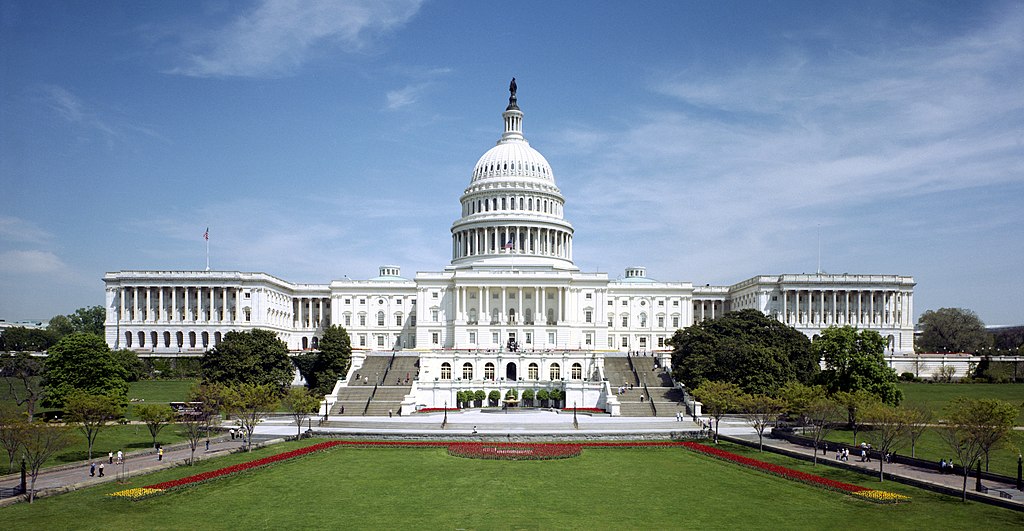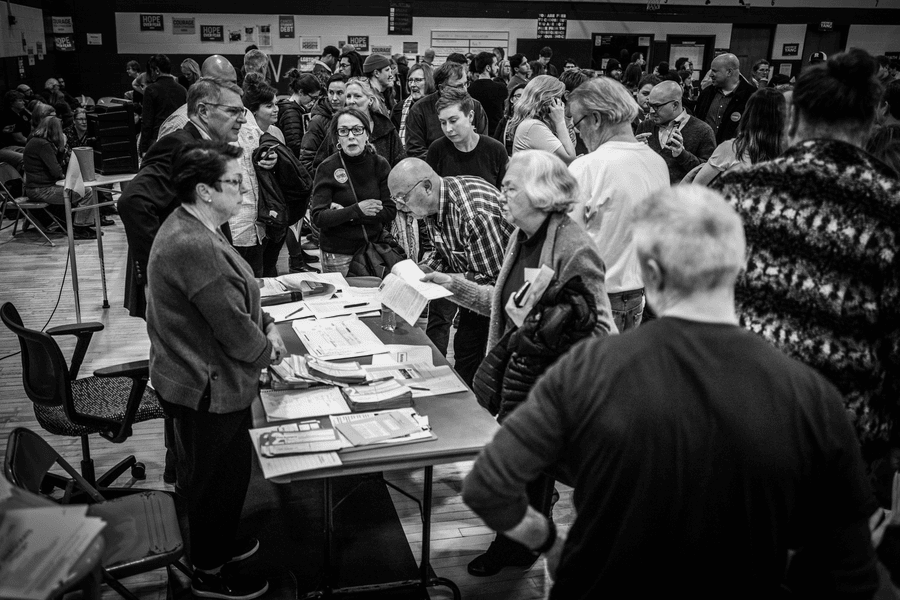Public Opinion on Election Security
Election security appears to have gained momentum on Capitol Hill. Days before lawmakers adjourned for the Easter recess, the Senate intelligence committee rolled out bipartisan policy recommendations and secured funding to shore up election security in advance of the 2018 midterm elections.

Published by The Lawfare Institute
in Cooperation With

Election security appears to have gained momentum on Capitol Hill. Days before lawmakers adjourned for the Easter recess, the Senate intelligence committee rolled out bipartisan policy recommendations and secured funding to shore up election security in advance of the 2018 midterm elections. Debate about election security in Congress has revolved primarily around the scope and scale of resources that should be deployed to address vulnerabilities in our national election system, rather than on whether or not Russian actors interfered in the 2016 election.
Recent polling shows that Americans are concerned about election security and Russian election interference as well, though a partisan divide remains to some degree. A recent Quinnipiac survey suggests most Americans recognize the vulnerability of U.S. election infrastructure and think the government should be striking a more defensive posture in advance of the midterm elections. A comfortable majority (70 percent) of Americans believe the Russian government tried to influence the 2016 election, including 90 percent of Democrats and 51 percent of Republicans. Independents side overwhelmingly with Democrats—70 percent say they believe Russia tried to meddle in the 2016 election, while just 22 percent disagree.
Most Americans express trepidation about the state of election security heading in the 2018 midterms. Sixty-one percent say the Trump administration should be doing more to protect the upcoming election from Russian interference, while just 28 percent of Americans think the Trump administration is doing enough.
The security of the midterms elicits a notably partisan response. Eighty-four percent of Democrats say the administration should be doing more to defend the midterms from “imminent” foreign threats. Just 35 percent of Republicans agree, while half say they believe the administration is doing enough. Most independents (64 percent) say the administration should be doing more, compared to just 24 percent who say it is doing enough.
This time last year, public opinion was deeply divided on whether Russia meddled in the 2016 election. A March 2017 CNN-ORC poll found that just 54 percent of Americans said they were “extremely” or “very” likely to believe the intelligence agencies’ conclusion that Russia attempted to influence the presidential election. This figure included a strong majority (75 percent) of Democrats but less than half (49 percent) of independents and just 18 percent of Republicans.
But public opinion on election interference has shifted, primarily among independents and Republicans. The share of Republicans who believe Russia meddled in the 2016 election increased 33 points in a one-year period, while independents increased by 21 points. It’s unclear what’s behind the shift. Perhaps these voters are taking seriously the recent calls from both intelligence officials and lawmakers to address existing vulnerabilities in election security.
Or perhaps they’re listening to President Trump, whose position on Russian interference in the 2016 election appears to have shifted in the past year. Trump routinely mocked the notion of election interference throughout the campaign and the first year of his presidency: Last summer, speaking about a meeting with Vladimir Putin at the G20, he responded to a yes-or-no question about Russian interference in the 2016 election by suggesting that “nobody really knows” whether Russia was solely responsible. But a few weeks ago, the president moved from casting aspersion on the intelligence community to denying that he had ever done so:
Days later, White House Press Secretary Sarah Huckabee Sanders doubled down on the president’s position, describing him as “tough on Russia” and stating that “interference in our elections will have consequences, and we’re going to continue to impose consequences in response to Russian cyberattacks.”
For the moment, it appears that Congress, the White House, and most Americans agree that Russian adversaries meddled in the 2016 presidential election and that more must be done to protect our elections. It remains to be seen, however, to what extent this consensus will shape any action on cybersecurity ahead of the midterms. And given the president’s volatility, especially on matters related to Russia, the consensus may not last long.



.jpg?sfvrsn=d8787e74_5)

